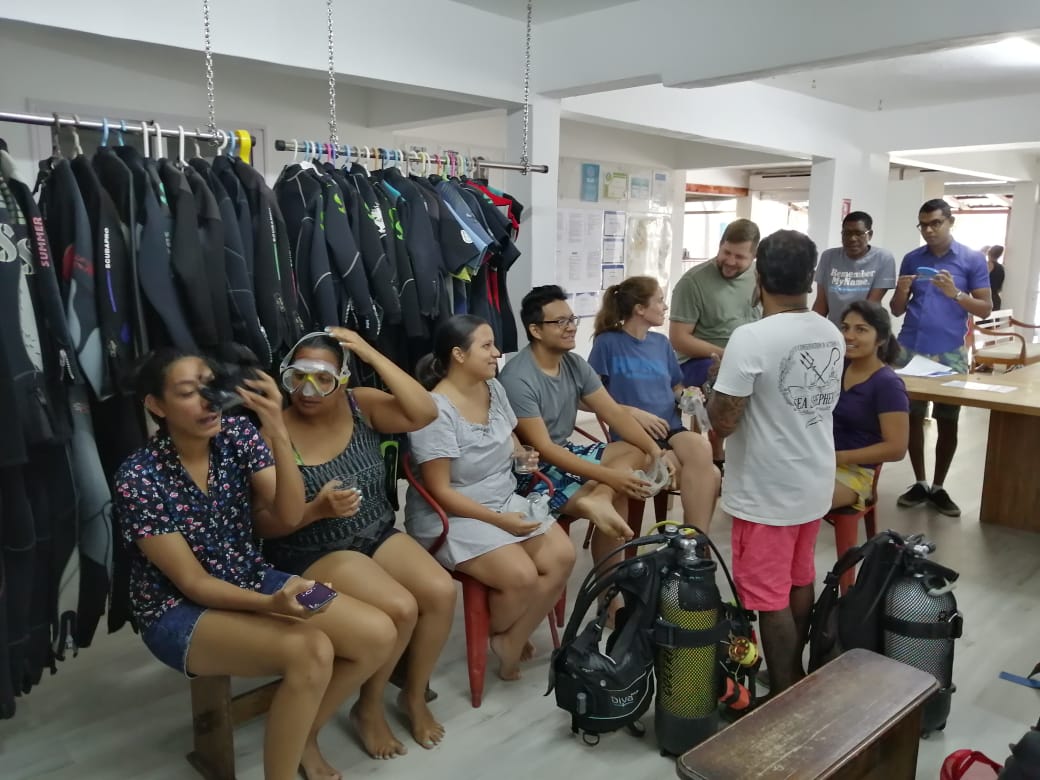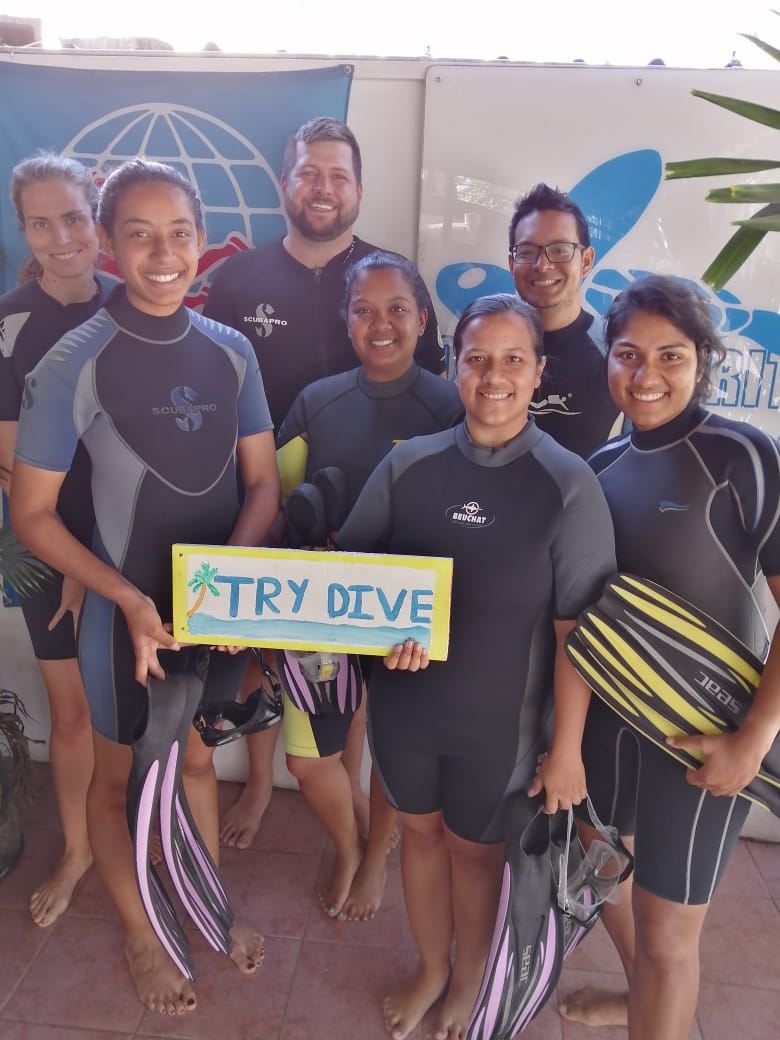News
How to survive a pandemic on a tropical island when your principal source of revenue is tourism?

The solution lies in the schools.
Since 500,000 indentured labourers arrived from India in Mauritius to cut the sugar cane in the 19th century, the ocean has been incredibly low on the list of interests for a predominantly Hindu Island. Revenue came from sugar, later textiles. Subsistence fishing put protein on the plate.
But since 2002 the development of Mauritius as a safe investment and even safer residential option for a globally ageing population has finally placed real wealth in the hands of Mauritians. The IRS scheme, where foreigners were allowed to buy property on the beaches, and the RES Scheme, where foreigners were allowed to develop residential properties in partnership with Mauritians, have successfully unlocked the wealth of the island and placed it firmly in the hands of the Mauritian people who owned those properties.
Free education has given Mauritius a 95% literacy rate, but wealth and a growing ex-pat community has given parents a private school option, so we started our Conservation and Diving initiative with these private and International schools.
Our biggest problem was bridging the financial gap while we established local markets. The Mauritian Government’s wage assistance scheme meant that all our registered employees would be paid by Government in full while our borders remain closed.
We already had school’s interest last year when we sponsored the Northfields Island Swim, cut short by the Virus, but for us it opened the door to this hugely proactive British International School. This gave us a group of students keen to learn to dive, and they are now eagerly awaiting the holidays so they can enjoy groups safaris to the outlying Islands.
Then I was invited to talk to the teachers at the Lighthouse School about the Wakashio disaster and Cleanup. Bernard, our dive master, and I went to the school with a flash drive and a fully equipped tank. Nadine, our sponsor, warned us that there would be only a few interested teachers listening, as there were a lot of presentations. There were 15 people to start with, but when we reached the part about the Wakashio, the numbers grew.
By the end, there were 35 teachers watching the Wakashio videos, and most of them signed up to do the free Try Dive we were offering. 40% are going on to do PADI Courses. Marine Conservation is now on the school curriculum for next year.
Our MSDA is working with the Sports Ministry to have swimming and scuba diving added to the local schools curricular where it will be free, paid by the Government.
Every weekend we are busy with free Try Dives in the lagoon in the mornings, and boat dives and courses in the afternoons.
Our French speaking colleagues Just Diving and Emperator have approached the French School Ecole du Nord, and they expect to fill their boats over Christmas.
Free Try Dives have been a huge success. The most difficult thing in a pandemic is to find a way to survive, and we seem to have found ours.
- Words: Jill Holloway
- Copyright: Ocean Spirit www.osdiving.com 2020
- Images: Ocean Spirit
Gear News
Introducing the TR-80, IR-50 and CS-30 Regulators from DYNAMICNORD

Whether you are a beginner or a professional diver – with the three new main regulators from DYNAMICNORD, everyone will find their favourite regulator. They all look super stylish.
Excellent performance with the TR-80
Quality and performance are the be-all and end-all for regulators. It is not for nothing that the TR stands for Tec Reg. The innovative design of the TR-80 guarantees absolute reliability – even in ice-cold waters.

Perfect breathing effort at 0.8 J/l / certified for diving in waters below 10 degrees / structural design made of solid brass for best cold protection / membrane-compensated design with dry seal of the first stage / reduced exhalation effort thanks to optimized exhalation membrane and bubble deflector / adjustable Venturi (dive/predive) and adjustment knob for individual inhalation comfort / innovative design of the front cover prevents free-flow in strong currents or when diving with scooters / design made of sandblasted brass, matt chrome finish / 2 HP and 4 LP outlets / mouthpiece made of high-quality, anti-allergic silicone for maximum comfort.


Amazing underwater adventures with the IR-50
The IR-50 is the top regulator for advanced and experienced divers. Natural breathing is the essence of this regulator.

Ideal breathing effort at 0.8 J/l /certified for diving in waters below 10 degrees / compensated membrane / adjustable venturi (dive/predive) and adjustment knob for individual inhalation comfort/ outlet valve and deflector for minimum exhalation effort and reduction of bubbles on the face / design made of sandblasted brass, matt chrome finish / 2 HP and 4 NP outlets / mouthpiece made of high-quality, anti-allergic silicone for maximum comfort.


The Workhorse – our CS-30
For diving centres and diving beginners – the workhorse stands for strong construction, reliability and robustness. Perfect for your training.

Optimal breathing effort at 0.8 J/l /recommended for diving in waters above 10 degrees / non-compensated piston / adjustable venturi (dive/predive) / outlet valve and deflector for minimum exhalation effort and reduction of bubbles on the face / design made of sandblasted brass, matt chrome finish / 1 HP and 3 NP outlets / mouthpiece made of high-quality, anti-allergic silicone for maximum comfort.


Octopus OP-30
The OP-30 is the ideal addition to all DYNAMICNORD regulators. It is identical in construction to the CS-30.

The TR-80, IR-50, CS-30 (DIN & INT) regulators and the Octopus OP-30 are available from DYNAMICNORD dealers and in the online store.
DYNAMICNORD – Your Outdoor Companion.
Marine Life & Conservation
Paul Watson Released as Denmark Blocks Japan’s Extradition Bid

Renowned anti-whaling activist Paul Watson has been released from custody in Greenland after spending five months in detention. Denmark’s Justice Ministry rejected Japan’s request for his extradition, citing insufficient guarantees that his time already served in custody would be credited against any potential sentence.
The 74-year-old Canadian-American was arrested on July 21 in Nuuk, Greenland’s capital, when his ship docked to refuel. His arrest was based on a 2012 Japanese warrant related to a 2010 encounter in Antarctic waters. Japan alleged Watson obstructed operations and caused damage to a whaling research ship during efforts to disrupt illegal whaling. Watson has consistently denied these claims, maintaining his commitment to marine conservation.
Denmark, which oversees extradition matters for Greenland, concluded that while the legal conditions for extradition were met, the lack of assurances from Japan regarding time-served credit made extradition untenable.
In a video shared by his foundation, Watson expressed gratitude and relief, saying, “After five months, it’s good to be out… and good to know they’re not sending me to Japan.” He added that the most difficult part of his time in custody was being separated from his two young sons.
Watson is a pioneering figure in marine conservation, known for founding the Captain Paul Watson Foundation in 2022 after decades of activism with the Sea Shepherd Conservation Society. His bold efforts to defend marine life have earned him widespread support, including from celebrities and conservationists. His work has also been featured in the acclaimed reality TV series Whale Wars.
Watson’s lawyer, Jonas Christoffersen, praised the decision, stating, “We are happy and relieved that Paul Watson is now free.” He added that Watson is eager to reunite with his family and continue his vital work.
The arrest occurred while Watson’s vessel, the M/Y John Paul DeJoria, was en route to the North Pacific with a team of 26 volunteers to intercept a Japanese whaling ship. His foundation described the arrest as politically motivated and emphasized that Watson’s actions were focused on ending illegal whaling practices.
Japan resumed commercial whaling in 2019 after leaving the International Whaling Commission, asserting that whale meat is a cultural tradition. Conservationists, however, continue to challenge these practices, highlighting their impact on marine ecosystems.
Despite the challenges, Watson remains steadfast in his mission to protect marine life and bring attention to whaling practices. His dedication to ocean conservation has made him a globally respected advocate for the environment.
-

 News2 months ago
News2 months agoIconic SS United States to become the World’s Largest Artificial Reef
-

 News3 months ago
News3 months agoBook Review – 52 Assignments: Underwater Photography
-

 Gear News3 months ago
Gear News3 months agoDYNAMICNORD – New German diving brand enters the British market
-

 News3 months ago
News3 months agoExploring Cenote El Pit: A Diver’s Dream
-

 Gear News3 months ago
Gear News3 months agoTry BARE drysuits (and maybe even win one!) this Friday with Sea & Sea at North West Dive Fest
-

 Marine Life & Conservation3 months ago
Marine Life & Conservation3 months agoBook Review: Coral Triangle Cameos
-

 Blogs2 months ago
Blogs2 months agoDive the Egyptian Red Sea this Autumn with Regaldive
-

 News3 months ago
News3 months ago2024 Ocean Art Underwater Photo Competition Announced


















